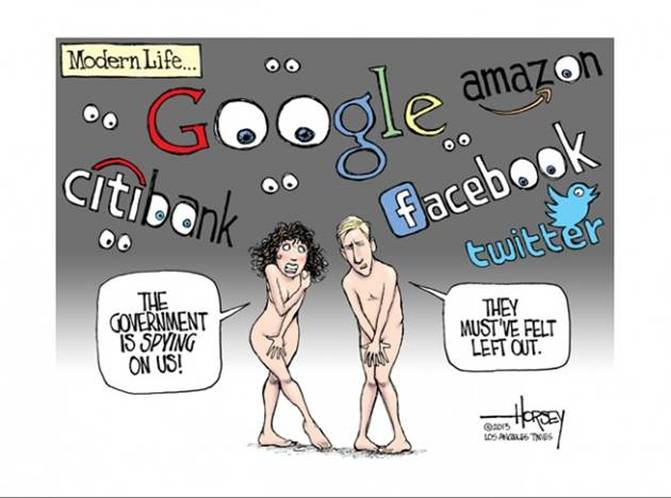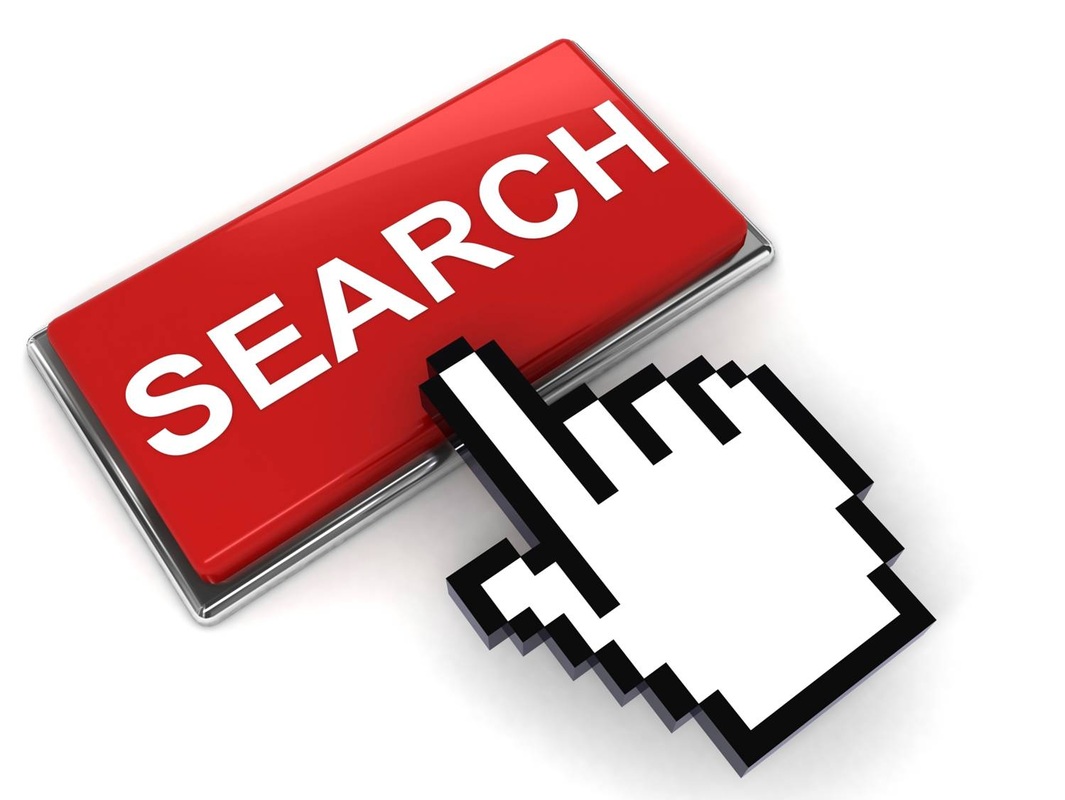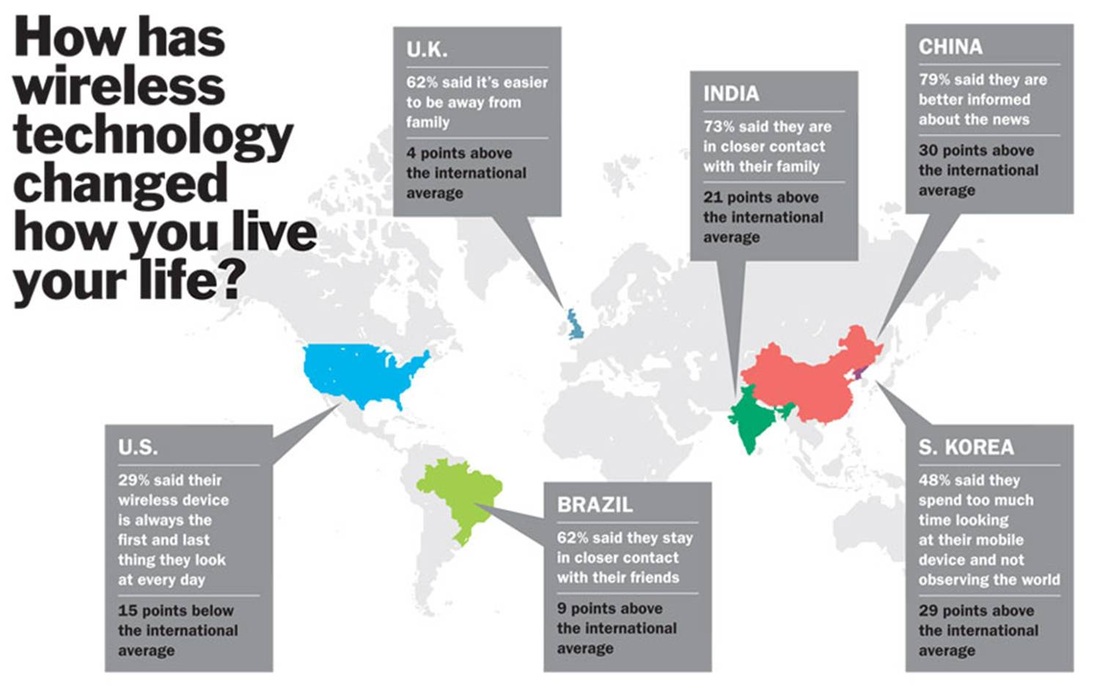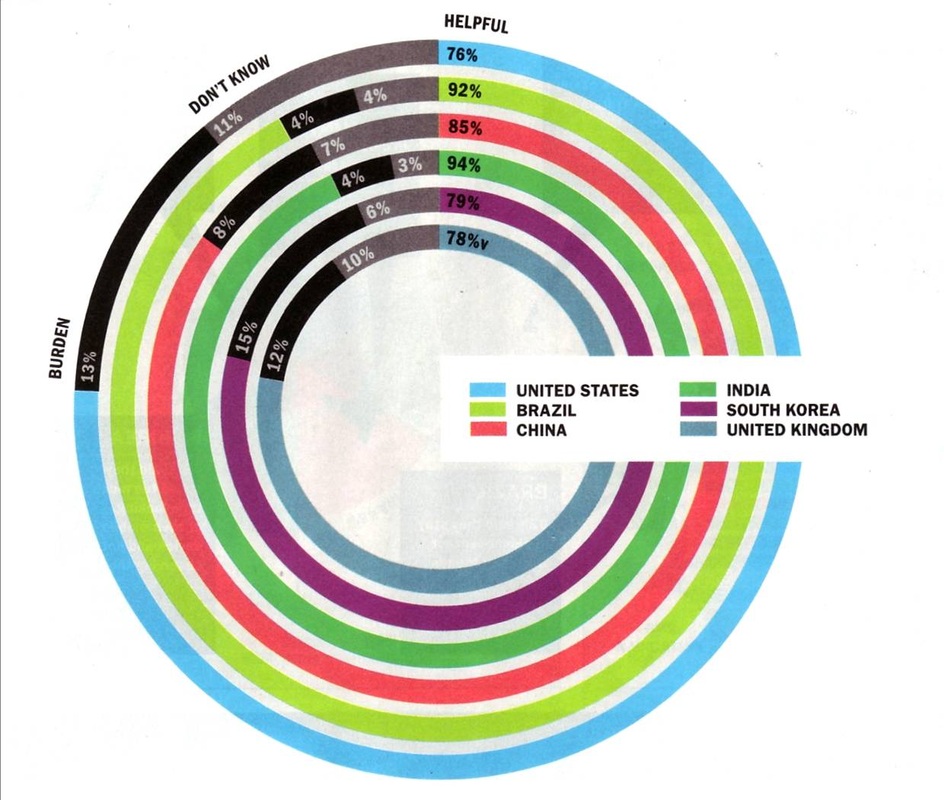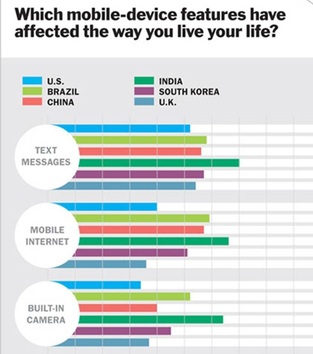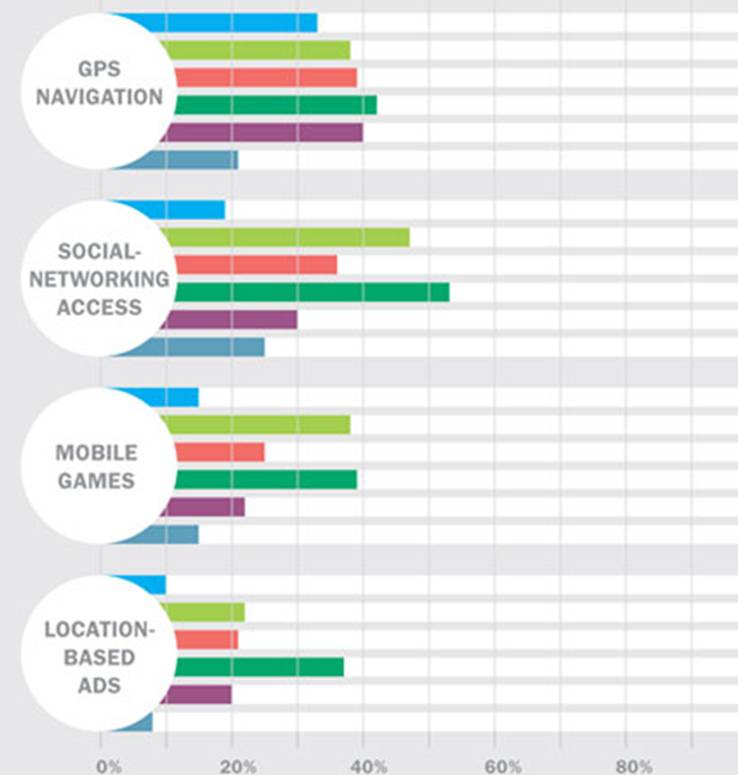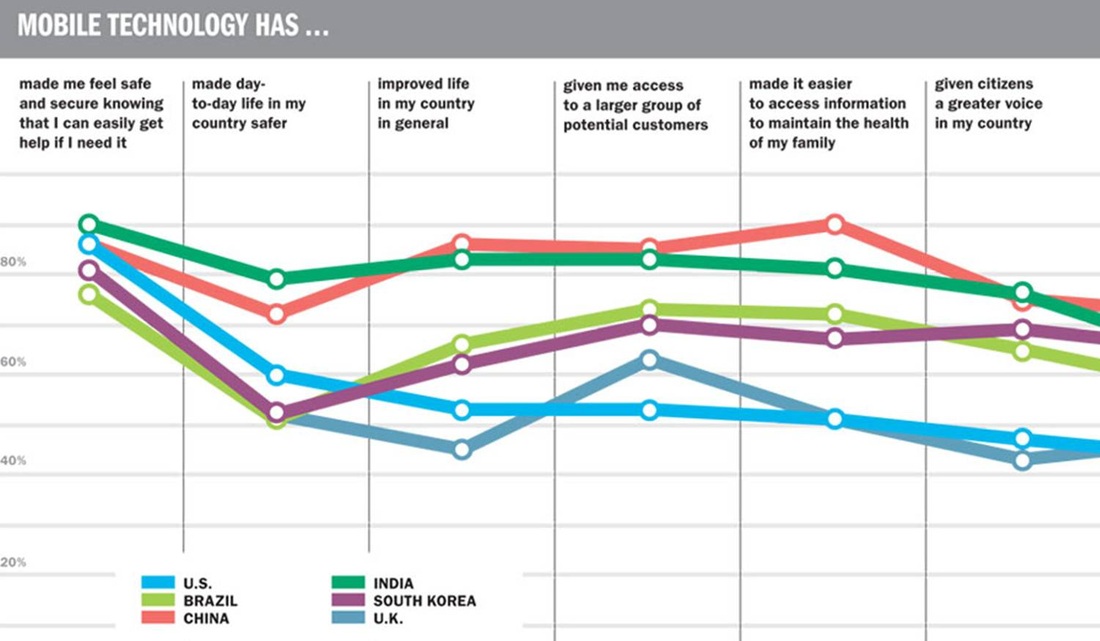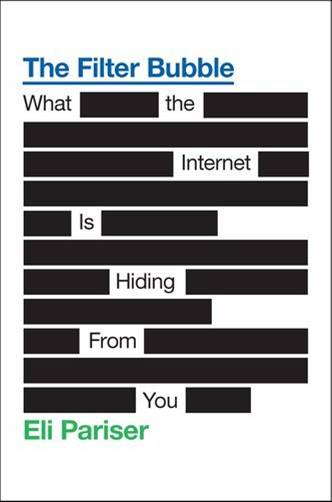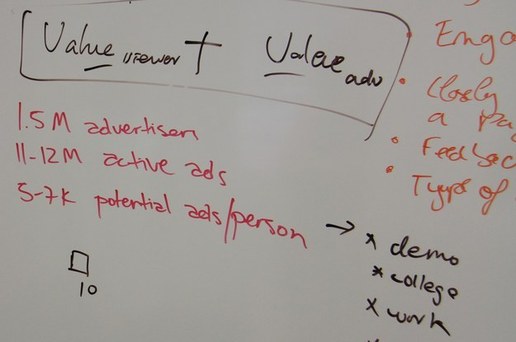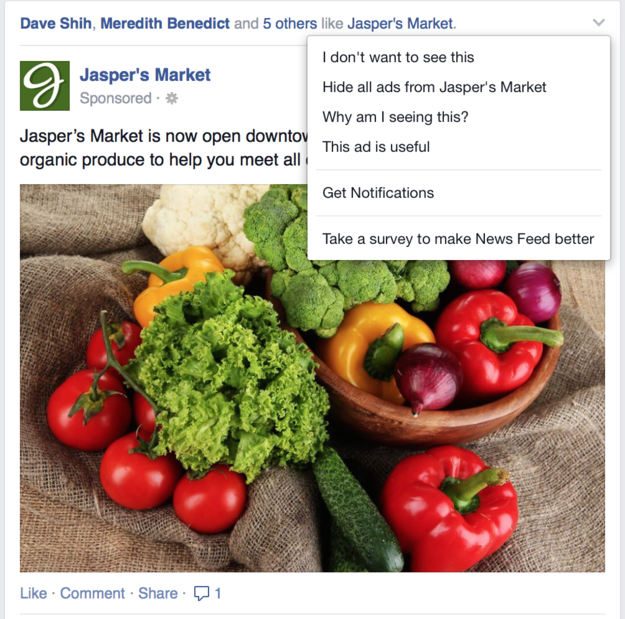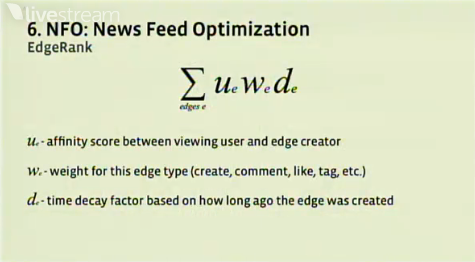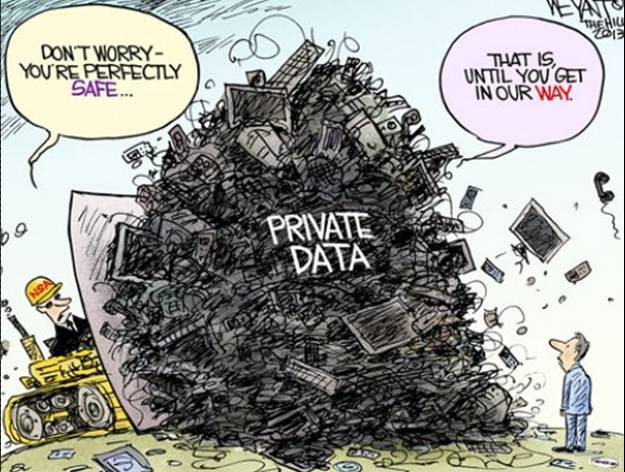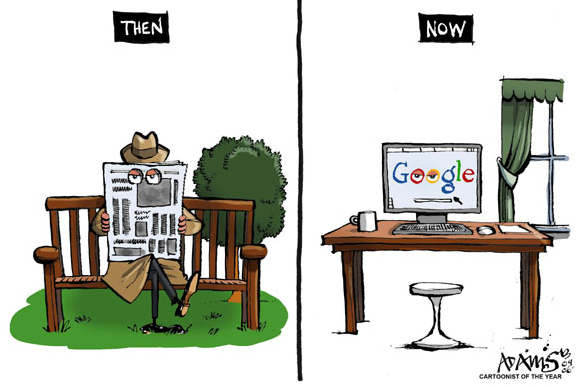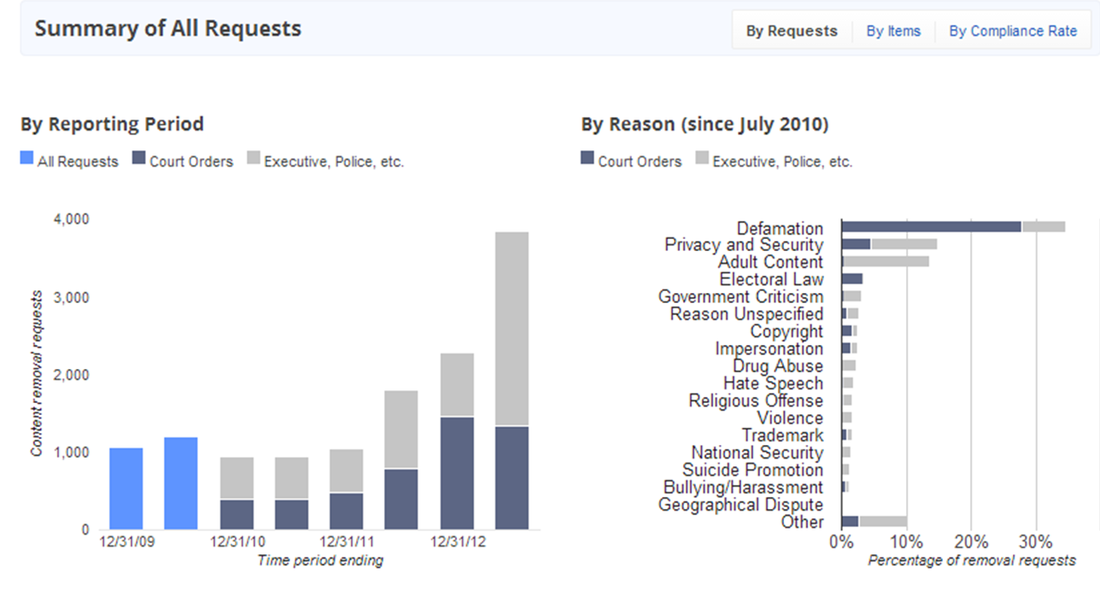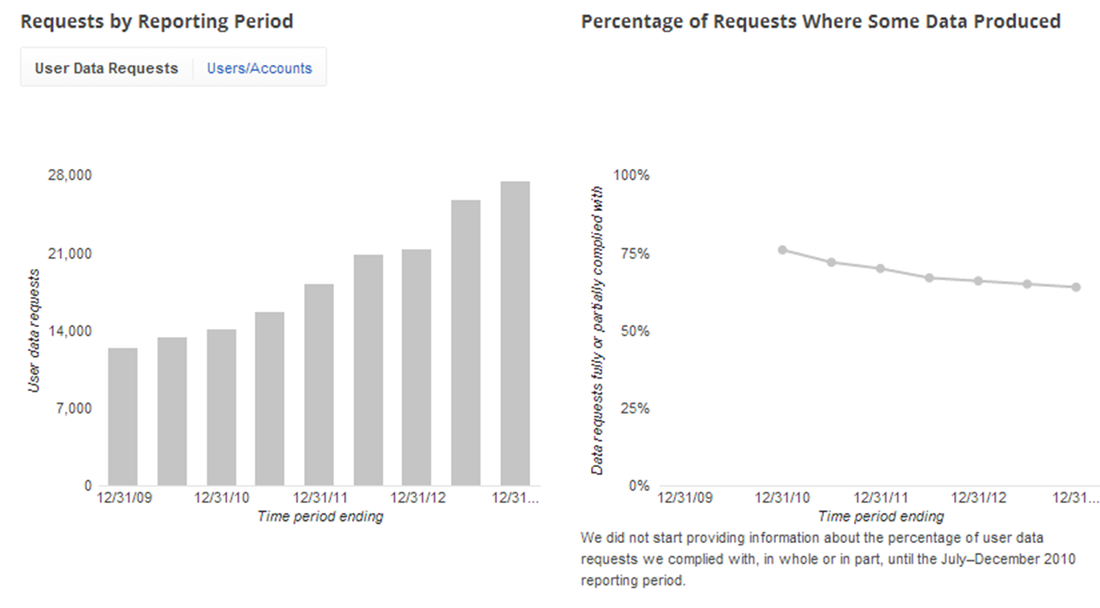The "Filtered" Internet
The Reality of the "Filter Bubble", and What the Government, Like the Internet, Knows, and Doesn't Know, About You
This unit is called Power. To this point, we've discussed the oligarchic power of our government, how the power of the voter has changed over time, the power that political socialization has over us, and most recently, how the power of the media, specifically media freedom and the Internet, affect and effect government.
Let's conclude our unit with one final activity: the power of the government and the power of the Internet combined. But more importantly, the power of you, the "voter" to know about this.
Let's conclude our unit with one final activity: the power of the government and the power of the Internet combined. But more importantly, the power of you, the "voter" to know about this.
Part I: Internet Dependency
In reading Eli Pariser's The Filter Bubble, we come to know that the "filter bubble" or the so-called "personalized Internet" adjusts itself to the user based on things like "click signals", "cookies", and "user history". For me, personally, I love this personalization!: there are movies, books, "auto-completes", and "suggested sites" I never would have found if Google, etc. hadn't recommended them!
Regardless, it's evident that the Internet, and its implications, have revolutionized our lives. But, before we discuss the "Filter Bubble", we must discuss 1) how dependent we are on the Internet, and 2) why we can't avoid the Filter Bubble. Start by examining the data below.
Regardless, it's evident that the Internet, and its implications, have revolutionized our lives. But, before we discuss the "Filter Bubble", we must discuss 1) how dependent we are on the Internet, and 2) why we can't avoid the Filter Bubble. Start by examining the data below.
- Choose three (3) countries whose facts you find startling and summarize the impacts of technology on their lives.
- The above image shows response to the question, Is the Internet Helpful, or a Burden, in Your General Life? Rank the countries in terms of "Helpful to Burden".
- Using the graphs above, which mobile-device feature do Americans use the most? the least?
- Which nation seems to "enjoy their device" the most?
- Lastly, make (2) conclusions about the above graph. (HINT: Perhaps focus on the U.S., and what we think, and secondly, focus on the "greatest responding" countries...)
Regardless of the responses, it's clear, from the above data, that humans rely on their devices, and the Internet, like never before. In turn, that means, we can't avoid the "Filter Bubble"
Part II: The "Filter Bubble"
OK. Here's where it gets fun. Remember...this unit is called "Power". And I want to discuss ways that the Internet wields power over you, and how you now have the "power of knowledge".
Who said you'd never use math again? Unless you work in the advertising department of Facebook, you still might not....but these guys do. That's their work on a white board above!
How does Facebook know what ads to show you? Every day, Facebook runs 11 to 12 million ads, from up to 1.5 million different companies! It's all a part of a massive formula called an "algorithm". The process of placing an ad on the Facebook News Feed is a complicated dance. Facebook has to decide not only which ad to show to its users, but when to show it to them. There isn’t a dedicated “slot,” so to speak, for an ad in News Feed, so the team must time the ads based what the user is doing on Facebook at that given moment.
How does Facebook know what ads to show you? Every day, Facebook runs 11 to 12 million ads, from up to 1.5 million different companies! It's all a part of a massive formula called an "algorithm". The process of placing an ad on the Facebook News Feed is a complicated dance. Facebook has to decide not only which ad to show to its users, but when to show it to them. There isn’t a dedicated “slot,” so to speak, for an ad in News Feed, so the team must time the ads based what the user is doing on Facebook at that given moment.
So, how do they do it? It's complicated, but actually quite simple:
- Using targeting data that is listed in YOUR profile — which ranges from what college the user is attending to where they live or where they work — Facebook is able to quickly whittle away the number of ads that are relevant to a specific user to between 5,000 and 7,000 ads. At this point, the job is only around halfway done.
- Then, they examine YOUR News Feed. On any given day, someone's News Feed features 1,500 stories and/or updates from their friends, their friends' friends, and their friends' friends' friends! But you don't see all of these "updates" do you? That's because the News Feed ranking algorithm’s job is to determine which of those stories should be shown to YOU! How do they do this? They examine all 1,500 of these stories to determine how engaging each post is — how many likes and comments it has — and a wide range of other signals it can use to determine what’s most important. For example, a News Feed story that has a comment that says “congratulations” is weighted more strongly than other stories, since it implies that some major life event may have occurred. Confusing? Just think of it like this: Facebook knows which stories have the most "buzz" based on comments and likes. They, therefore, will place it TOWARD THE TOP of your News Feed.
- But what about ads? There are ads placed in your News Feed related to what your friends post! For example, if a friend says something about "Getting into college", you might see an ad for college in your News Feed. Invasive? Yes. But it works. SINCE YOU'RE INTERESTED IN YOUR FRIENDS, YOU'D BE INTERESTED IN THINGS IMPORTANT THEM, RIGHT?
You've seen ads like this, right? How do they place this ad?
800 million users visit Facebook every day. Last year, Facebook generated $2.68 billion in revenue. And if you click on just one of those ads, it works, ya? Kinda scary...but it's all math! Just see the equation below :-)
- Where you live (from your profile)
- What you like (from your profile)
- What your friends post (from their activity)
- What your News Feed says (from their activity on your News Feed)
- BOOM! There's an ad.
800 million users visit Facebook every day. Last year, Facebook generated $2.68 billion in revenue. And if you click on just one of those ads, it works, ya? Kinda scary...but it's all math! Just see the equation below :-)
Part III: What the Government Knows
With the help of people like Edward Snowden, we now know that the U.S. Government is, and has been, collecting data on us for some time. Facebook does it. Websites do it. Why not the government? Is it legal? YES, says the Supreme Court, in the name of "national security". But what are they doing with this information?
In June 2011, it was reported that the U.S. Government asked Google for user data 4,061 times! And it was revealed that for every request, Google complied 94% of the time. What does the government want? And what did Google tell them? Thankfully (because they're Google and they're awesome), Google reported everything you'd need to know, in a nice, handy-dandy format.
In June 2011, it was reported that the U.S. Government asked Google for user data 4,061 times! And it was revealed that for every request, Google complied 94% of the time. What does the government want? And what did Google tell them? Thankfully (because they're Google and they're awesome), Google reported everything you'd need to know, in a nice, handy-dandy format.
The first site you'll see (the link come later) is the Google Transparency Report. Put simply, it shows the number of requests a country's government makes to have certain "Google material" removed from searches, images, videos, groups, etc. Firstly, examine the chart below.
- What are the two (2) conclusions you can draw about government requests and/or the reasons for the request?
Click here to access the Google Transparency Report. You'll see a range of countries that have made requests to Google to have certain material removed. If you click on the "Request" title at the top, you can rank the countries by their number of requests.
- Examine the Top 5 Countries in terms of request (U.S., Brazil, Turkey, Germany, and France). Click on the (i) icon to see why the requests were made. Summarize the reasons (I personally find Brazil's the most interesting...).
Next, we'll look at a government's request on an individual. Examine the graph below.
- What are the two (2) conclusions you can draw about government requests for individual data?
Now click here to access a different part of the Google Transparency Report. Again, you'll see a range of countries that have made requests to Google for information on certain individuals. If you click on the "User Data Requests" title at the top, you can rank the countries by their number of requests.
- What are the Top 5 Countries in this list? ANALYSIS: They say that "imitation is the sincerest form of flattery". Do the other 4 countries, and the fact that they're pretty "good" countries, make you feel BETTER or WORSE that we're in "first place"? Why or why not?
Lastly, click here. You'll find the Washington Post's analysis of the government program known as PRISM. Using the site, complete the "Fill-In" Story below:
- The government "spy-program", known as "PRISM", targets "__________" by collecting "__________" from companies such as Apple, Yahoo, Microsoft, and Google. How does it work? First, the __________ (an acronym for the "National Security Administration") targets a "__________", which can be a person, or simply a "search term", like "uranium", a material used in nuclear weapons. Then, they send a request, or "__________", to a company like Google for specific information on the "selector". Hopefully, the "task" returns data such as emails, calendars, and files, or certain data known as "__________" that identifies a whole lot more! The data is then analyzed by NSA computers who act, partly as a "__________" and also as a "__________". The analyst can receive all of this data within __________ or __________. Again, this program is SUPPOSED to target foreigners, but what if the "tasking" returns with an American? Usually, the results are "__________", but if it's important data, it might be referred to another agency.
- Which three (3) cities in the United States are the largest "Internet hubs"?
- Which "continent" or "part of the world" has the most bandwidth (a fancy name for Internet speed and connection)?
- The Internet in the United States flows at a rate of 20.6 terabits / second. This is essentially 20 million times the speed and capacity of your Internet at home! Provide some data. How many photographs and how many emails are sent, in the United States, per second?
